Photographer's lens shatters stereotypes around Muslim women
 Print This Print This
By Ghazala Malik | CBC News
Canadian Broadcasting Corporation
Friday, Nov 9, 2018
 |
| Aalya, a Canadian Muslim woman photographed by Alia Youssef for The Sisters Project. (Alia Youssef) |
Photographer Alia Youssef is challenging the way many Canadians picture Muslim women.
Even as a young girl, Youssef — now 23 — says she struggled with the way she was perceived as a Muslim growing up in Canada.
Youssef's family immigrated from Egypt when she was eight years old, settling down in suburban Vancouver where she says she quickly learned to hide the fact that she was Muslim.
She grew up feeling ashamed of her identity, background and her religion, she says, all because of the connotations that came with being a Muslim woman.
Youssef went, "from being so proud and excited to talk about my religion and my faith as I did when I was in Egypt, to closing down and being more reserved about what I was sharing with people — because some of the comments I got right away after moving made me feel like my background was not OK to share, because I was automatically being judged. So that left me growing up feeling like that was something that I needed to hide about myself."
It was not until recently, as a young photography student in Toronto, that Youssef decided she had the responsibility and the skills to do something to counter the negative narratives that exist around Muslim women.
"Muslim women constantly have this one-dimensional image being stamped repeatedly on them. That every Muslim woman is oppressed, she is often silent, she is often in no control over her life, she is at the will of her male counterpart."
Youssef felt this narrow lens through which Muslim women are often portrayed did not capture her reality, or that of the women in her family and of so many of the Muslim women around her.
"I wanted to counter the idea that Muslim women can be painted with one brush, by instead humanizing Muslim women and diversifying the narratives of their everyday lives, and shining a light on Muslim women who make up the fabric of contemporary Canadian society."
She created The Sisters Project, a photo series of Canadian Muslim women that aims to shatter stereotypes around who Muslim women are and their role in Canadian society.
As part of the series, Youssef travelled across Canada this summer and photographed nearly 200 Muslim women going through their daily routines, doing everything from shopping and working out to gardening and driving motorcycles.
The series has a platform on social media where, through photography, text and videos, weekly stories showcasing Canadian Muslim women are shared.
Youssef is currently showcasing her work in her first exhibition of The Sisters Project at the Ryerson Image Centre in Toronto. She hopes that through her work she will be able to shine a spotlight on the spectrum of Muslim women across Canada, and in some way or another shatter prejudices and change how people think of Muslim women and Muslim people as a whole.
Alia Youssef teamed up with the New York blog Muslim Girl to flood the web with photos that positively represent Muslim girls and women. The photos show Muslim girls shopping, working out, sewing and relaxing in a park, images the 'The Sisters Project' says highlight a range of narratives far beyond the media's usual limited portrayals.
Here are some of Youssef's shots from The Sisters Project, with thoughts from the women in each photograph:
Ayaan
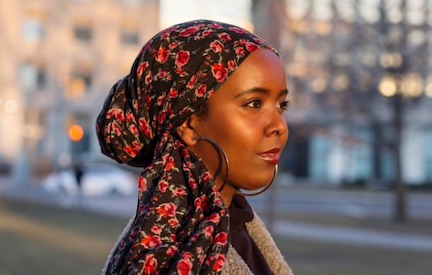 |
| Ayaan |
"One of the most challenging experiences of my life was understanding that I, as a Black Muslim woman, will experience unnecessary hardships in this world because of how others may perceive my race or religion.
"When I was younger I did not think of the space that I take in society and how significant it was. However, as I got older I recognized how people shift their attitudes as they interact with me."
Ayesha
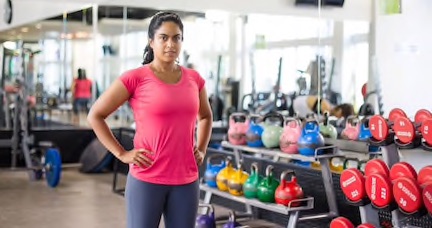 |
| Ayesha |
"I have been blessed with a life full of joyous gifts, and a countless number of these gifts are unearned — just plain lucky. But a lot of the gifts are the result of persistent, hard work.
"As women of colour, we're taught to undervalue our hard work, but we work hard. Some of the hardest working people I've ever met are women of colour."
Dyhia
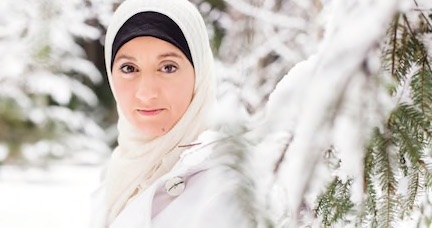 |
| Dyhia |
"My hijab states my religion very well and people often tell me 'welcome,' thinking I am a Syrian refugee or something.
"I like breaking stereotypes, so it is not important for me how and what people think about me. Whatever they think, I will exploit it in my favour."
Fatima
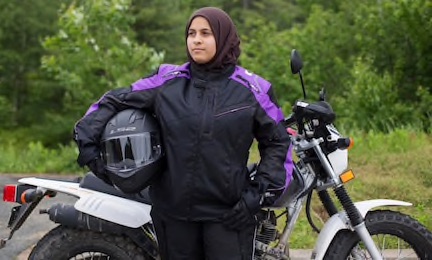 |
| Fatima |
"The best part of riding my motorcycle is when I take off my helmet and people are shocked to see my hijab underneath.
"It makes me laugh, because no one expects hijabis to do something like this. That's why I want people's perception of girls who wear the hijab to change."
Faye
 |
| Faye |
"I step outside of others' expectations.
"I've been like that for a long time and I know it's been a challenge for my family to witness. I never necessarily surpassed expectations, but I also haven't failed to fulfil any. I think I just learned early on to put them aside and look for answers to my questions."
Randa
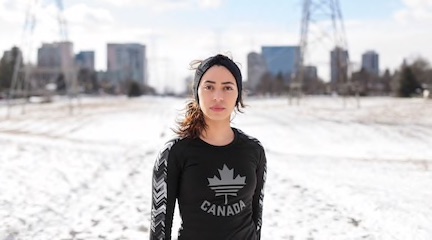 |
| Randa |
"The biggest stereotype of Muslim women is that she is severely oppressed, which is the biggest joke, too.
"Every time I hear this I laugh, I laugh at the ignorance. I don't even take the time to defend them, because if I told them how awesome we are, they would never believe it anyways.
"But it's enough that we believe in ourselves. We don't need anybody telling us what we are and what we are not."
Zaynab
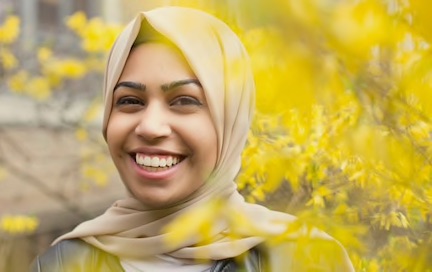 |
| Zaynab |
"To others, I feel as if I am perceived as someone who fades into the background. But in reality I am someone who was born to stand out.
"I want to be perceived as a warrior. As someone who is strong and has no fear when it comes to conquering my dreams and standing up for what I believe in."
Aalya
 |
| Dyhia |
"I want to be perceived as that person whose thoughts, words, and actions reflect the Islamic ethos by helping those who exist on the periphery of society and its norms."
Saba
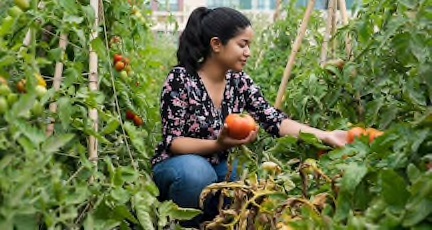 |
| Saba |
"If anything could be improved upon, it would be others' awareness that we are independent.
"The decisions we make are our own. Our religion, our culture, and our families impact our decisions, just as your religion, your culture, and your families affect yours.
"Ultimately, though, we make our own decisions, just as you make your own."
Idil
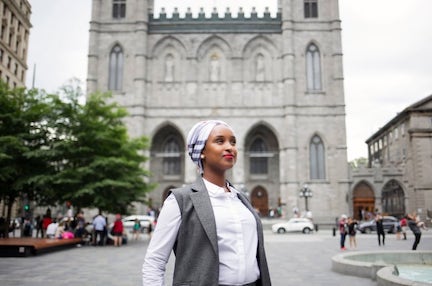 |
| Idil |
"I am a Canadian, and I claim the term, unhyphenated and unapologetically.
"Wherever my journey takes me, it will take me there as a Canadian, linked to its past and hopeful in its future."
All Photos by Alia Youssef
Source URL
|
 Print This Print This

|

